Learn all about what matcha is and how to use it in the kitchen, along with my favourite matcha green tea latte recipe that I’ve been using for years.
What Is Matcha?
Translated, matcha literally means powdered tea, with Ma meaning powder and Cha meaning tea in English. Matcha tea, black tea and green tea all come from the same plant, the Camelia Sinensis. The difference between them is in the preparation. With regular green tea, the leaves are infused in water and then removed, while matcha leaves are ground and consumed whole.
Is Matcha Better Than Green Tea?
While matcha comes from the same plant as green tea, it has a different nutritional profile, and the general consensus is that it comes with more health benefits.
Matcha tea contains more caffeine than regular green tea, but still less than coffee or black tea. It also appears to contain more EGCg, a powerful antioxidant. Most importantly, while matcha will boost your energy levels due to caffeine, it doesn’t come with the jitters and energy slump often associated with drinking coffee or traditionally brewed tea.
How Much Caffeine Is There in Matcha?
Matcha has about 30mg caffeine/teaspoon of powder. In comparison, coffee has about 150 mg/8 ounces, depending on how it is brewed.
What Does Matcha Taste Like?
A good quality matcha is slightly sweet, with vegetal grassy notes and pleasant bitter undertones. If you like the taste of green or black tea, you’re most likely going to like matcha. Milk, honey or other sweeteners can be added to make it sweeter.
Can Matcha Go Bad?
Yes. Matcha is often called a “near future” tea, as you’ll want to consume is as soon as possible.
Once opened, it will retain its colour, flavour and aroma for up to 2 months. It’s best to buy matcha in small quantities and store it in the fridge to preserve its freshness.
Is It Safe to Drink Matcha Every Day?
Yes, you can absolutely enjoy at least one cup of matcha tea every day. The average adult can safely consume 400mg of caffeine a day, and matcha has around 70mg of caffeine per teaspoon, or 1 cup of matcha.
This means you could safely consume up to 5 ½ cups of matcha a day. However, matcha is also very rich in fibre, so if your digestive system has been sluggish, you may experience some renewed digestive vitality. It’s important to pay attention to how matcha is affecting your digestion.
What Is the Best Time to Drink Matcha?
It’s perfectly acceptable to drink matcha any time you crave it, but you will be most grateful for its invigorating properties when you enjoy it:
Before exercise – consuming green tea increases the body’s capability of burning calories dramatically, up to 35-43%, and matcha can increase your physical endurance up to 24%.
Before work – matcha helps to ease stress through its active ingredient, L-theanine. This creates alpha waves in the brain that induce a state of relaxed alertness. Plus, matcha can even improve your ability to absorb and retain new information.
As a pick me up – matcha will boost your energy due to its caffeine content, but without the crash. Because it’s both a stimulant and a relaxant, it’s perfect for consuming between lunch and dinner.
It’s best to avoid drinking matcha at these times:
- Very early in the morning or on an empty stomach, as it can lead to stomach upset.
- At the same time as your main meals, as it can reduce the absorption of vitamin B1 in your body.
- After 5pm in the evening, as caffeine stays in the bloodstream for up to 5 hours.
Health Benefits of Matcha
Matcha, like other green teas, is a great source of antioxidants, including the powerful EGCg, and has a range of positive effects on the body.
- Provides vitamin C, selenium, chromium, zinc and magnesium
- Is rich in fiber, chlorophyll and vitamins
- Detoxifies effectively and naturally
- Boosts metabolism and burns calories
- Calms the mind and relaxes the body
- Enhances mood and aids in concentration
- Helps fight fatigue
- Gives you better breath, as it inhibits the growth of germs
Can You Drink Matcha While Pregnant?
It’s recommended to limit the amount of caffeine to under 200mg a day when pregnant. A teaspoon, or a cup of matcha, has only about 30mg of caffeine. In comparison, coffee has about 150mg/8 ounces, depending on how it is brewed.
However, if you’re feeling unsure about consuming caffeine during your pregnancy, or want more information, it’s always best to ask your doctor.
Is Matcha Good for When You’re Sick?
Matcha is rich in catechin, a type of antioxidant that is found in tea leaves. This antioxidant not only helps to prevent colds, but can also reduce inflammation when you do have a cold. Moreover, drinking matcha will provide you with a gentle caffeine boost without the jitters, which can be very useful when you’re feeling under the weather.
Is Matcha Good for Weight Loss?
Matcha has a number of benefits, but the most popular question remains – can matcha help me lose weight? The truth is, no supplement, or drug, or tea can miraculously help you shed those excess pounds. If you want to lose weight, you’ve got to adopt a healthier diet and become more physically active.
However, matcha contains certain nutrients, such as caffeine and antioxidants, that boost your metabolism slightly, which can help you burn a few extra calories and give you more energy, making it easier to be more active. Plus, it’s tasty and filling, while low in calories, which makes it helpful if you’re dieting.
Is Matcha Good for Your Skin?
Yes. Matcha is antibacterial and contains incredibly high levels of epigallocatechin gallate (EGCG), which is helpful in reducing inflammation. Moreover, the antioxidants are also known to be beneficial for reducing acne and increasing skin elasticity.
Is Matcha Good for Anxiety?
According to a recent study, matcha does have calming effects, helping to reduce anxiety, as it activates dopamine and serotonin receptors. You can find the full study on the effects of matcha tea on anxiety here.
Is Matcha Good for PCOS?
Matcha does not offer specific hormone balancing benefits, but it does contain a load of amazing health benefits that can help you begin to heal some of your PCOS symptoms.
Will Drinking Matcha Give You Energy?
Absolutely! The combination of naturally occurring amino acids plus small amounts of caffeine give an instant energy boost, but without the jitters or energy slump associated with drinking coffee.
Matcha is both a stimulant and a relaxant, which is why Buddhist monks used it as an aid in meditation. The stimulation from the caffeine kept them alert, while the amino acids kept them calm and focused. A cup of matcha generally provides 4 to 6 hours of mild steady energy.
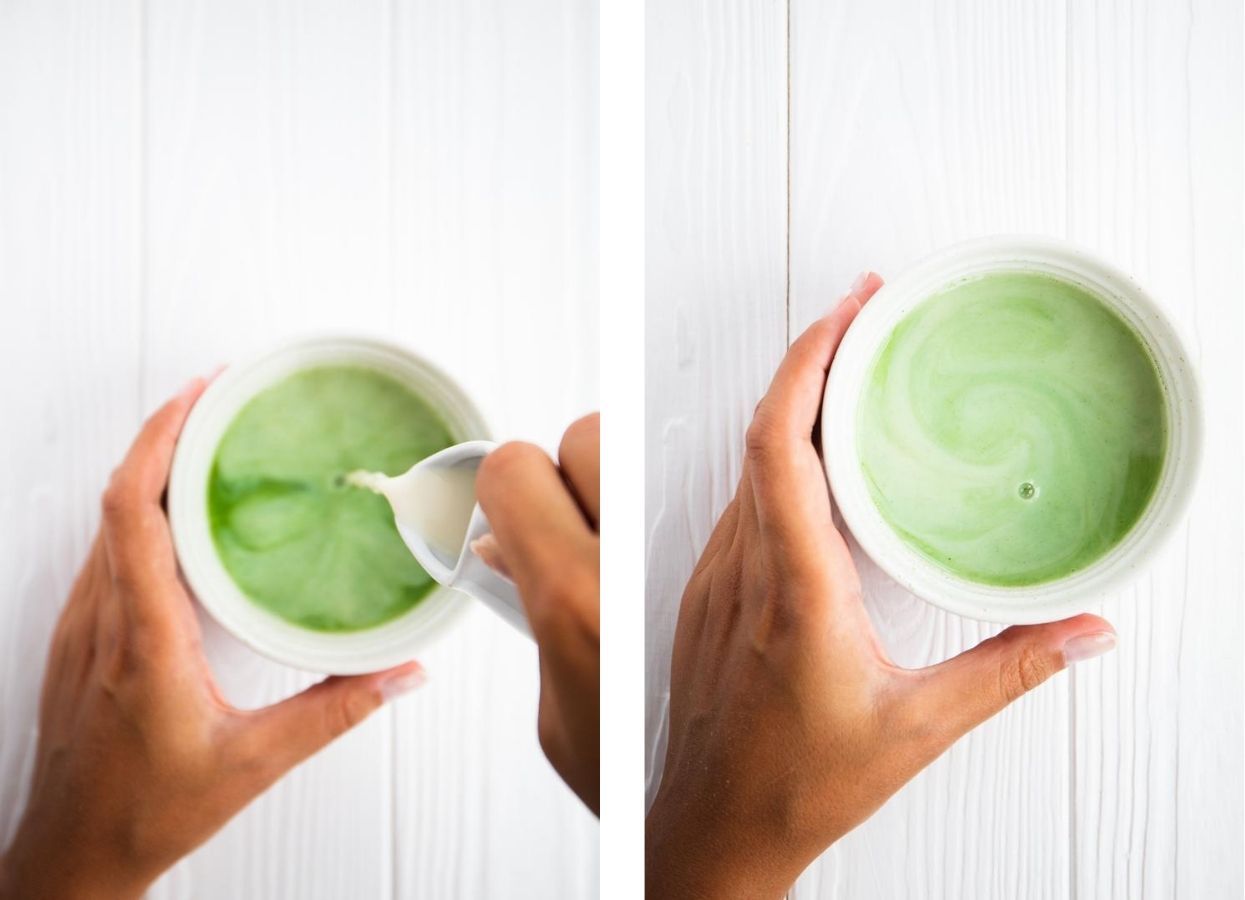
Buying Matcha
Buying matcha for the first time can be confusing, and I’m not just talking about all the different brands out there.
The most significant distinction is between ceremonial and culinary grade matcha. You can find a very good explanation for how to pick the right matcha grade for your needs at matchasource.com, but essentially there are four different grades of matcha:
Ceremony grade
- Flavour profile – vegetal and creamy, delicate and sweet
- Price – upper price range
- Use – tea whisked in a bowl
Classic grade
- Flavour profile – creamy with a distinct bitter note
- Price – upper middle price range
- Use – tea whisked in a bowl
Cafe grade
- Flavour profile – full bodied, grassy, slightly astringent
- Price – lower middle price range
- Use – lattes, blended drinks, desserts and other recipes
Kitchen grade
- Flavour profile – most astringent
- Price – lower price range
- Use – lattes, blended drinks, desserts and other recipes
How to Prepare Matcha Green Tea Latte
The recipe for preparing your basic matcha green tea latte is very straightforward.
- Sift 1-2 teaspoons of matcha powder into a cup using a small sifter. This breaks down any clumps and makes the drink smoother.
- Add approximately ¼ cup (2oz) hot water. For best results, use water just under a boil.
- Whisk vigorously in a zigzag motion until the tea is frothy.
- Top it off with more hot water or steamed milk. Enjoy your matcha tea straight from the bowl.
Do I Need Any Special Utensils to Prepare Matcha Green Tea Latte?
No, you can technically do it with a cup and a teaspoon. However, there are some utensils that can make preparing matcha a lot more efficient and pleasurable, and turn your matcha drinking into a proper ritual.
- Sifter – recommended to get the clumps out and prepare a perfectly smooth bowl of tea.
- Scoop – makes it easier to scoop out a small amount of matcha and dose it more precisely.
- Bowl – you can usually prepare and drink matcha from the same bowl.
- Whisk – a specialised whisk is often used to help completely dissolve the matcha powder.
Preparing Matcha Matcha Green Tea Latte in a Blender
This might be a less conventional method for preparing matcha tea or latte, but one that I’ve been using for years. If you don’t have a proper matcha whisk, you can simply put all the ingredients – either matcha and water, or matcha and milk plus any sweeteners – into a blender and blend for about a minute.
This technique delivers extra frothy matcha latte. Usually, I will prepare my iced matcha latte this way, adding a few cubes of ice to the mix. If I’m drinking hot matcha latte or matcha tea, I tend to go the traditional way and use my whisk.
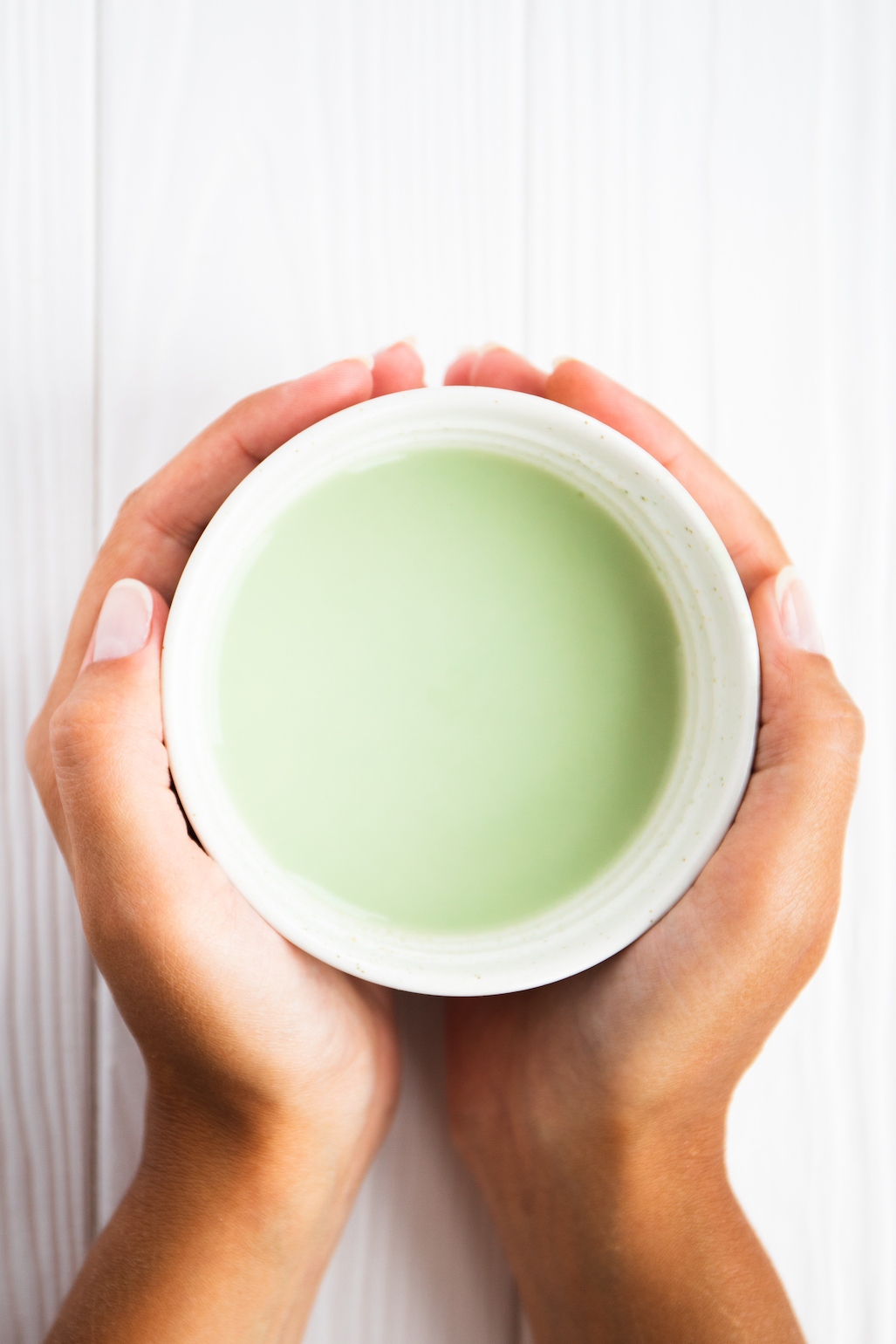
Cooking with Matcha
Cafe grade and kitchen grade matcha are used in cooking and drink making recipes. They are stronger in taste and will hold up to sweeteners and other ingredients, plus they’re often on the less expensive side, so you can easily use a bit more. I love adding matcha to milk drinks, yogurt and homemade ice cream, or using it in baking. Here’s a list of my favourite recipes with matcha:
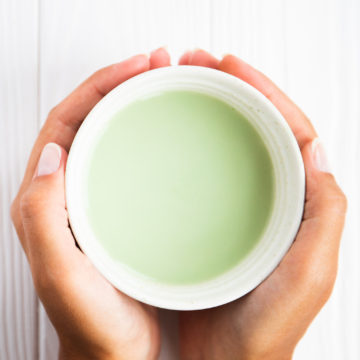
Matcha Green Tea Latte
Ingredients
- 1 teaspoon matcha powder
- 1 cup (240g) plant-based milk (use either hot or cold)
- 1 teaspoon sugar optional
Instructions
- Sift 1 teaspoon of matcha powder into a cup using a small sifter.
- Add approximately ¼ cup (2oz) hot water. For best results, use water just under a boil. Whisk vigorously in a zigzag motion until the tea is frothy. If using sugar, add it now.
- Top it off with your favourite non-dairy milk, either hot or cold. Enjoy your matcha latte straight from the bowl.

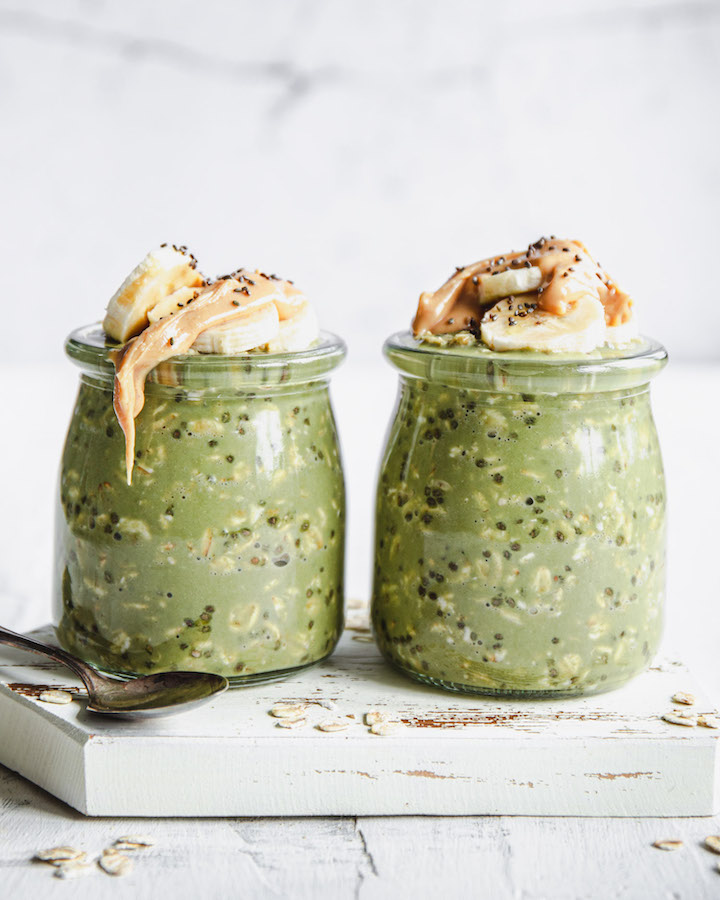
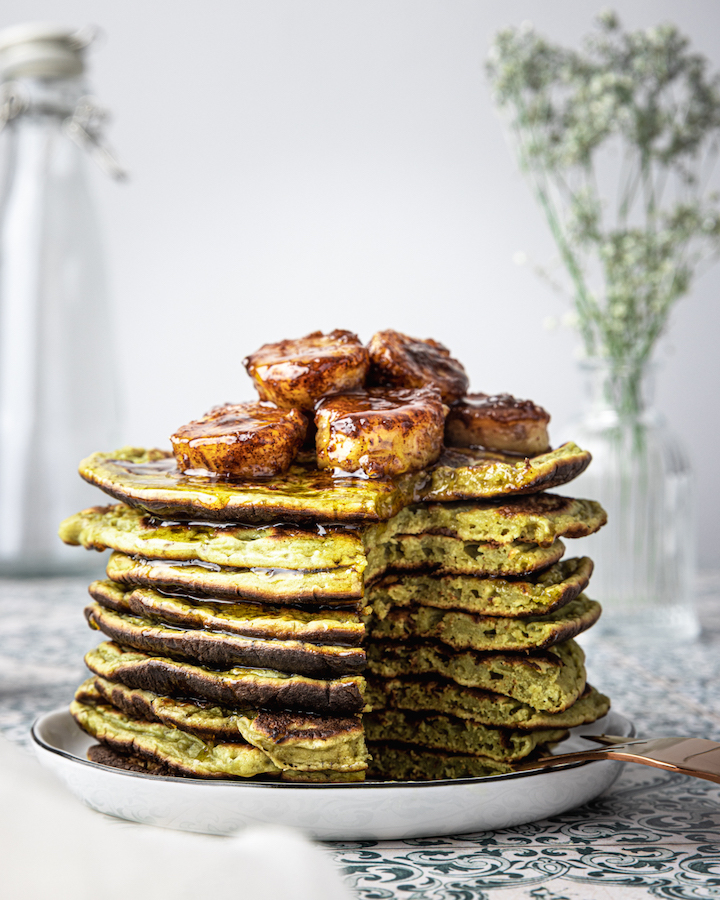
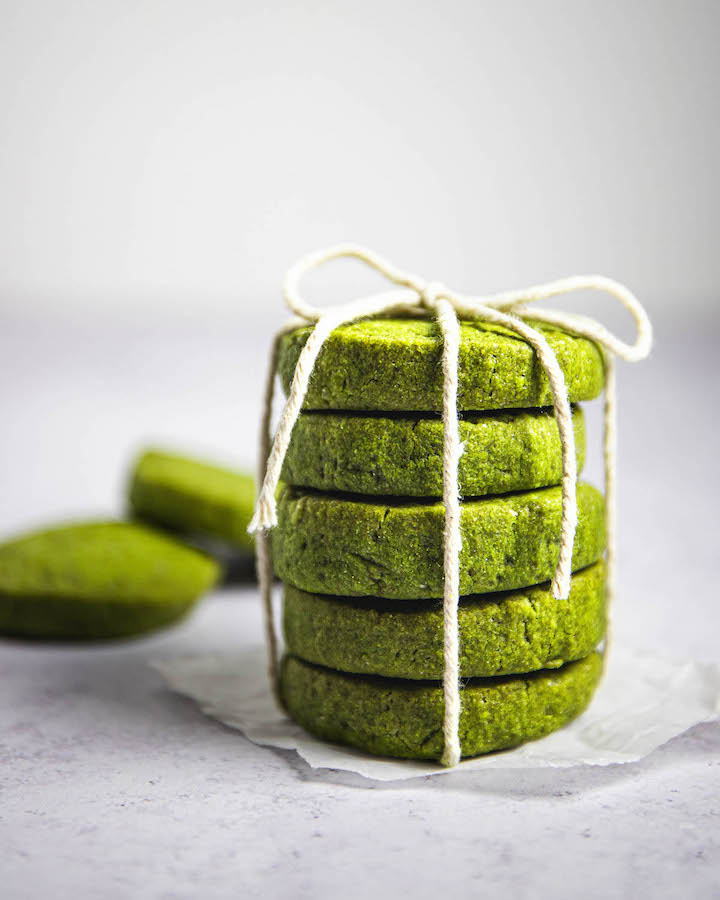
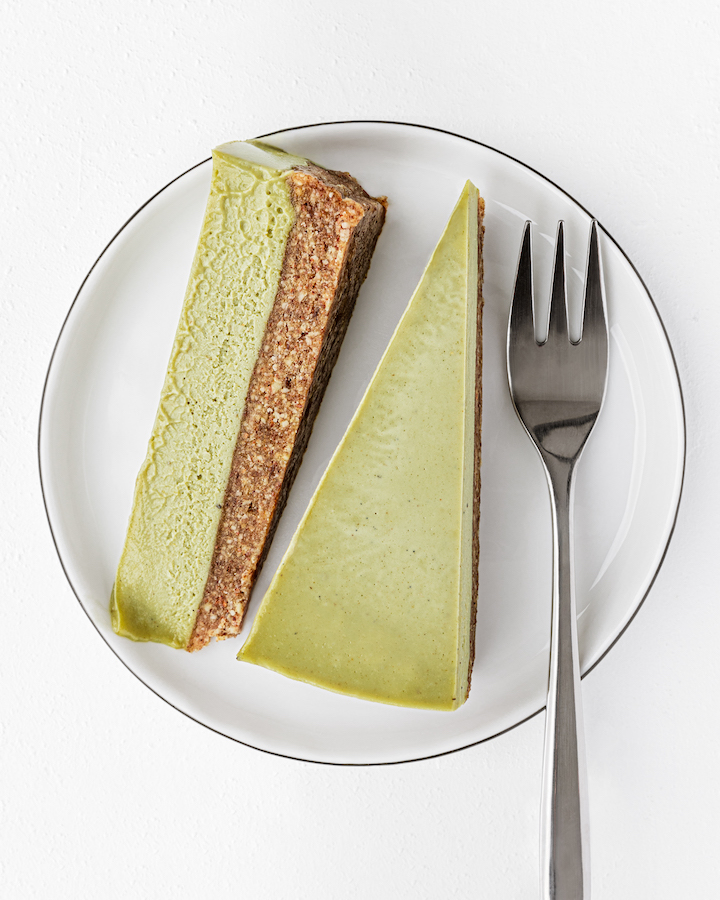
Leave a Reply